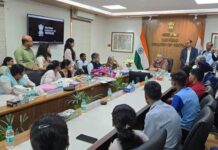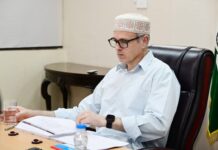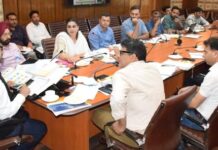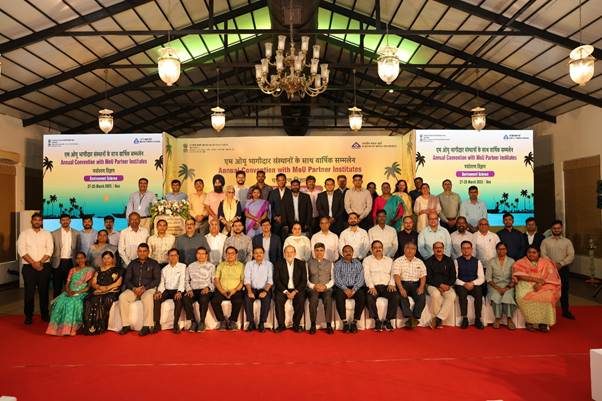APRIL 3: The Bureau of Indian Standards (BIS) convened its Annual Convention for Deans and Heads of Departments (HoDs) from partner institutions focused on Environment and Ecology in Goa. During the two days’ convention; 45 delegates from 32 partner institutions, alongside senior BIS officials, delved into the theme “Sustainability through Standards.”
In his welcome address, Shri Praveen Khanna, Deputy Director General (Southern Region), underscored the pivotal role of academic institutions in developing national and international standards.
Shri Sanjay Pant, Deputy Director General (Standardization-II), highlighted the significance of standardization in addressing sustainability challenges. “Standardization is the foundation of sustainability. By collaborating with academia, we can develop research-driven standards that address environmental challenges and create a lasting impact for future generations,” said Shri Sanjay Pant.
He introduced the newly established Environment and Ecology Department (EED), consolidating various BIS standardization activities into a dedicated division. Since its inception, the EED has released nearly 100 standards through its nine specialized committees.
The convention included comprehensive technical sessions on ongoing initiatives within the Environment and Ecology Division Council (EEDC) where 8 expert panels are engaged in standardization across crucial areas, including Air Quality Management, Water Quality Management, Waste Management, Environmental Monitoring, Sustainable Habitat, Sustainable Agriculture, Circular Economy, and Biodiversity & Ecosystem
Featured speakers included Dr. Alok Sinha (IIT Dhanbad), Dr. Anju Singh (IIM Mumbai), and Ms. Shabnam Bassi (GRIHA Council), who emphasized the necessity of addressing gaps in existing standards to bolster national climate initiatives such as the National Action Plan for Climate Change (NAPCC).
Utilizing the ‘Know Your Standards’ feature on the BIS Care App, participants evaluated existing standards and pinpointed new areas for development. Key discussions included: Waste Management & Recycling; Water Quality & Management; Sustainable Construction & Materials; Environmental Monitoring & Pollution Control; Green Energy & Climate Change Mitigation; Health & Safety Standards and Campus & Industrial Sustainability
On the second day, delegates observed a live demonstration of BIS’s digital solutions, which included the Academic Dashboard, a platform enabling partner institutions to access standards, submit research projects, and contribute to technical committees. BIS also presented tools for downloading and commenting on draft standards, facilitating involvement in international standardization efforts.
A special session led by Shri Ritesh Baranwal (Director, Finance, BIS) concentrated on the role of standards in sustainability and sustainable finance. His presentation illustrated how financial frameworks can underpin sustainability initiatives through standardization.
The BIS Annual Convention reinforced the organization’s dedication to collaborating with academia to formulate standards that address vital environmental and ecological issues. BIS aims to establish robust, research-driven standards that contribute to a more sustainable future by fostering partnerships among experts, researchers, and policymakers.



















